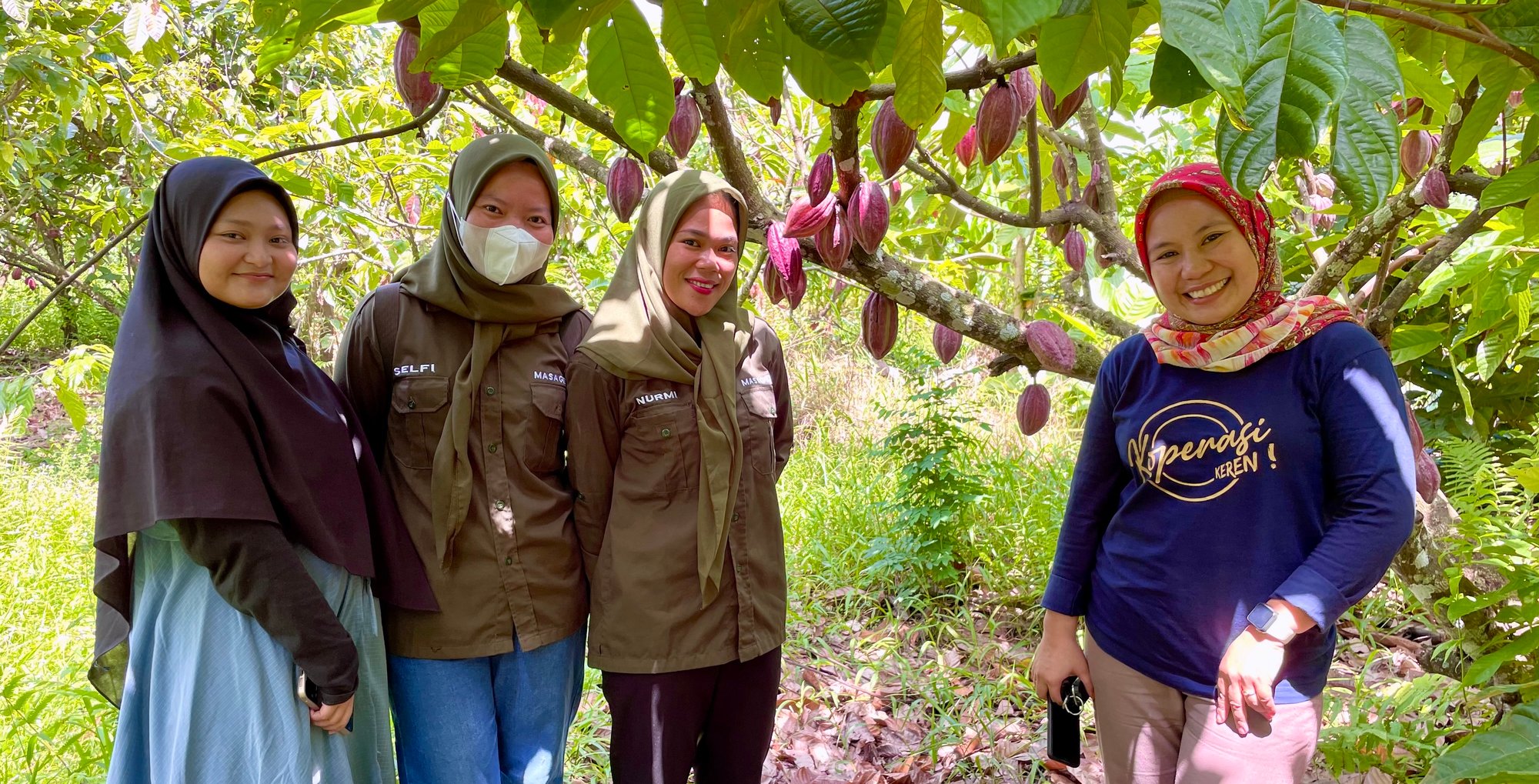Responsible.
Really, truly, actually.
The hulking corporate chocolate gorillas - think supermarket checkouts and Halloween candy - claim to have cleaned up their acts. The data suggest otherwise. We walk the environmental, labor, and transparency walk.

Visit our blog for more on our work with Ayu Antariksa (right) and her staff Sriwanda, Selfiani, and Nurmi (left to right) of cacao cooperative Koperasi Tani Masagena in Masamba, Sulawesi, Indonesia.
Inspired By The Best
We haven't reinvented the responsibility wheel. Our friends at Uncommon Cacao and Meridian Cacao Co. lead the way on transparency and fair trade, paying well above commodity prices for their specialty beans. Likewise, many of our favorite grower coops practice regenerative cacao agroforestry, intercropping with temporary and permanent shade trees. And we're closely monitoring the U.S. Depart of Labor's efforts to combat child exploitation on cacao farms via their grants to Save the Children and Winrock International.
Our Pillars of Responsibility

Environment
Climate change threatens everything, including the global chocolate supply. Cacao yields in large swaths of Indonesia have fallen roughly 50% over the past ten years due in part to government missteps, but also to higher temperatures and erratic rainfall that stress trees and impede pollination. The situation in West Africa isn't much better. Farmers need to plant new heat-resistant cacao clones, but education and extension are sorely lacking. We work with co-ops that train their members in climate-smart cultivation and with NGO and government programs that subsidize the development and re-planting of heartier cacao varieties.
Labor
This exhaustive 2020 report from the University of Chicago says it clearly: despite major chocolate companies' recognition of child labor in their supply chains and commitment to end the practice, the past decade has seen significant backsliding. From page 12: "In Côte d’Ivoire the prevalence rate of child labor in cocoa production among all agricultural households increased from 23 percent in 2008/09 to 38 percent in 2018/19, while in Ghana the prevalence rate increased from 44 percent in 2008/09 to 55 percent in 2018/19." We avoid these tainted supply chains as best we can, principally by sourcing beans from trusted coops in Latin America and SE Asia, but that's not enough. Visit our blog to learn more.

Transparency
Although forced child labor in West Africa is clearly the most egregious social ill that the chocolate industry needs to address, underpaying farmers comes in a close second. The international commodity price for cacao is pitifully low and farmers barely earn enough to live. That's why we're so impressed by, and seek to emulate, our partner Uncommon Cacao's annual Transparent Trade reports. When you know farmers by name, have visited their farms and their homes, and respect their craft as much as we do, only a monster - a corporate monster, perhaps - could knowingly underpay them.